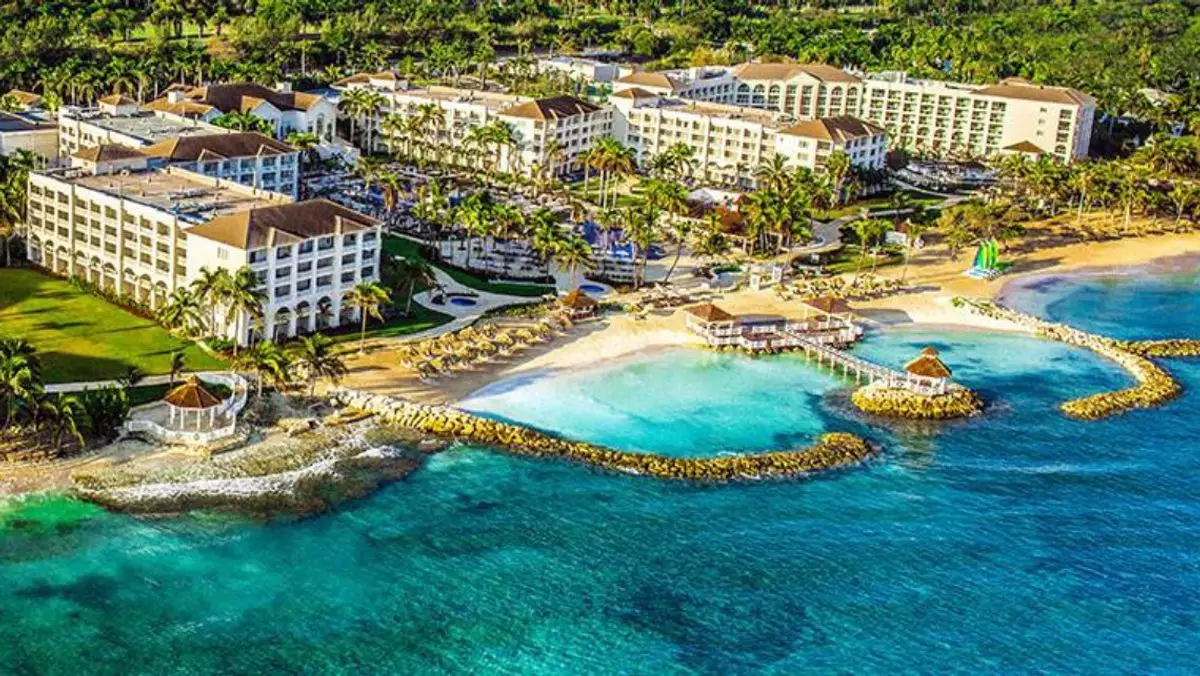The hospitality industry is currently witnessing a paradigm shift that prioritizes all-inclusive resorts as the preferred choice for vacationing clientele. Hyatt Hotels Corporation intends to capitalize further on this trend, announcing its intent to acquire Playa Hotels & Resorts for an impressive $2.6 billion. This acquisition will not only bolster Hyatt’s portfolio but also raise questions about the company’s capacity to manage such rapid growth effectively.
With 24 new properties across the Caribbean and Mexico, this acquisition will bring Hyatt’s total to over 120 resorts under its Inclusive Collection. The move is painted as a strategic maneuver that enhances Hyatt’s standing in the competitive high-end all-inclusive market. Yet, industry pundits are analyzing the potential pitfalls of such rapid expansion. The questions surrounding operational efficiency and customer experience are imminent. As the company moves beyond mere portfolio expansion, its ability to integrate and manage Playa’s existing assets becomes a central concern.
Patrick Scholes, a lodging and leisure equity research director at Truist Securities, suggests that this agreement facilitates greater control for Hyatt, particularly in maintaining management agreements for the Hyatt Ziva and Hyatt Zilara brands, which have been operated by Playa in the past. This newfound autonomy is crucial. Without the burden of a third-party competitor, Hyatt can implement operational efficiencies that may otherwise have been hampered or complicated.
The acquisition allows Hyatt to sell off Playa’s owned real estate, with an expected return of at least $2 billion by the end of 2027. This could be a significant financial windfall for the company. By maintaining management contracts on the sold properties, Hyatt may stand to gain approximately $20 million annually from management and franchise fees. However, financial gains do not come without risks. The sheer size of Hyatt presents opportunities not available to Playa, but it also burdens the brand with the expectation to deliver consistent performance across a more extensive array of properties.
Industry experts argue that Hyatt must navigate its transition adeptly, lest the rapid expansion threaten the quality and service levels that guests have come to expect. While Playa has struggled to sell its assets due to its smaller size, Hyatt’s size offers it a competitive edge. The real test will be whether the integration process is executed smoothly, allowing for smoother transitions between ownership and management without disrupting guest experiences.
One compelling benefit of this deal is the simplification of the booking process. Abbey Meyer, CEO of Altitude Travel, has pointed out the confusion faced by travel advisors when booking Hyatt Ziva and Zilara properties. Historically, these brands were fragmented across different booking platforms, complicating the sales workflow for travel professionals. With this acquisition, Hyatt aims to streamline the process, benefiting travel advisors and, by extension, the traveling customer. Such improvements may translate into more robust sales figures and higher customer satisfaction.
Hyatt’s investment appears resolute, building on its previous acquisitions—like the $2.7 billion purchase of Apple Leisure Group in 2021. Its partnerships, including a recent joint venture with Grupo Pinero, are geared toward creating a comprehensive all-inclusive portfolio. The move also aligns with the growing demand for all-inclusive travel, especially in markets like Europe, where Hyatt is also keen to expand. Yet, as Meyer notes, the aggressive nature of this growth raises questions about whether Hyatt can manage all its ventures concurrently without diluting its brand promise.
As Hyatt pushes further into the all-inclusive realm, a significant concern among industry analysts revolves around its ability to meet the promises made to its loyal clientele. The rapid pace of growth can create gaps in service delivery, posing a challenge to brand integrity. Yariv Ben-Ari, a lawyer specializing in real estate hospitality, asserts that Hyatt will need to balance its aspirations with the realities of operational limitations.
If Hyatt can successfully navigate these complexities, the acquisition of Playa could mark a new chapter for the company, elevating its market position and redefining all-inclusive offerings. However, if the brand fails to maintain consistency amid its swift changes, it risks alienating the very dynasty of guests it seeks to grow.
Ultimately, the grand narrative surrounding Hyatt Hotels’ expansion encapsulates both excitement and trepidation. While the prospects seem lucrative, it crucially depends on the execution strategy moving forward and maintaining the level of quality that loyal customers expect. The hospitality industry remains vigilant; the unfolding of this acquisition’s impact will undoubtedly reverberate through the sector for years to come.


Leave a Reply